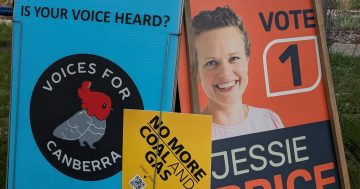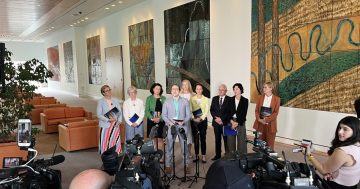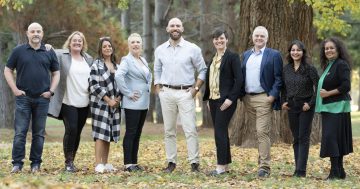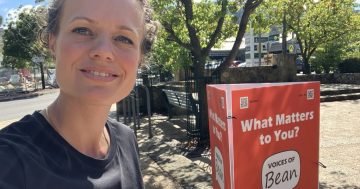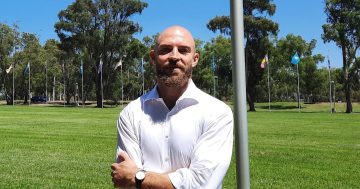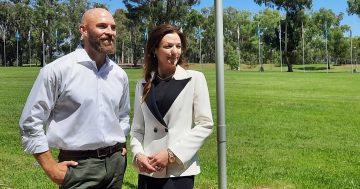
Helen Haines is the first independent to succeed another in Federal Parliament, and she attributes it to a community-first model practised in Indi. Photo: George Tsotsos.
If this year’s Federal election proved anything to Canberra voters (and next year’s Territory election will likely be the same), it’s that we’re stuck in a political rut.
Unyielding party politics is delivering us the same results time after time. But how can we energise the electorate, create change and deliver the most representative government? Is there another way?
This week I sat down with Helen Haines, who is the new Member for the Victorian regional seat of Indi. The midwife-turned-health academic has pulled off a rare feat: she is the first independent to succeed another independent in Federal Parliament, following in the footsteps of Cathy McGowan who famously took the seat from Liberal Sophie Mirabella in 2013.
Weekly news wrap with Genevieve Jacobs
This week's news update comes with the new rural independent Helen Haines from Indi. Is her community-led model a way to get new blood into Parliament? We talk about Meegan Fitzharris's sudden departure from the Assembly, more speed cameras, the ongoing stadium debate and why house values could soar in Karabar and Charnwood.
Posted by The RiotACT on Wednesday, June 26, 2019
Haines says that when McGowan indicated she was ready to retire, the Voices for Indi movement knew they had to work out a way forward, “otherwise this wasn’t a revolution”. Her candidacy came about through a deliberative process – voters across the electorate attended forums in their local halls which were often standing room only.
That process delivered a strong foundation of support: there were 1700 volunteers on the ground who were wholly committed to her campaign and Haines says the community as a whole has become much more activated.
“People who have never been politicised before are now really interested in the election of their Federal representative. If each one of them goes out and engages, that conversation grows across the electorate,” she says.
The Indi movement’s watchword has been to do politics differently by bringing everyone along with the discussion around policy and politics but also in terms of their understanding of the process. That community-first approach also informs how Haines is planning to carry out her role as their representative.
Her approach mirrors that of Cathy McGowan who used local radio and media, listening posts and community surveys but she’s adding a further layer of consultation with those 1700 committed supporters who worked for her on the ground. They’ll have input on how her constituents can communicate most effectively with their MP in between election cycles.
“I need to seek out people who are not necessarily active contenders by going to the kind of places where people are there for their own purposes – kindergartens, young parent gatherings, the local shops where I can ask them questions about what they need and listen to them.”
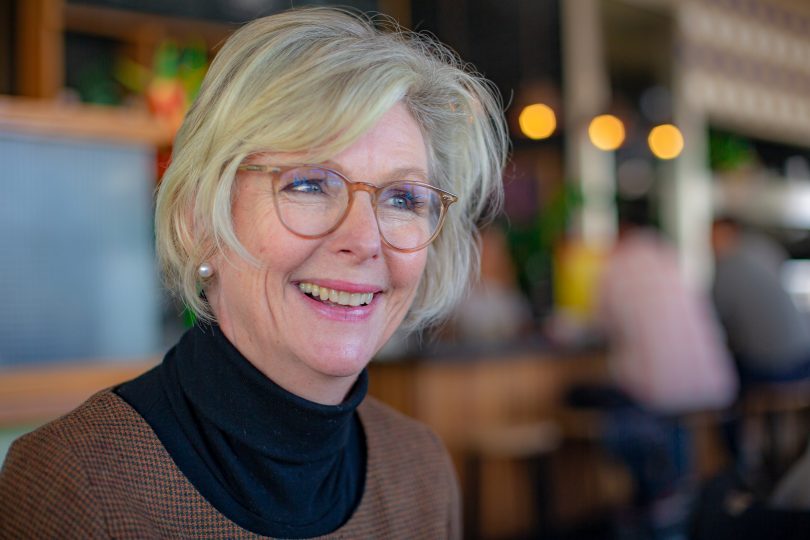
Haines is confident her community will keep her accountable.
In Parliament, Haines wants to work on a couple of areas where her constituents have signalled concern, among them climate change, rural mental health services and aged care. She’s not keen to occupy a defined space on the political spectrum and believes that climate change, in particular, has been politicised in a way that’s completely unhelpful to resolving the problem.
“In rural areas, we see the changes right before our very eyes. There’s not a question about whether something is happening because we know it is. The question is how do we adapt to that so our livelihoods are not destroyed. I think that farming and rural communities can talk about climate in a less adversarial way with other politicians because it’s central to our lives.”
Haines believes the Indi independent model worked because the consultation process never stopped in the community. Voices for Indi continued to run workshops and an active website. Indi talk fests happened across the electorate, attracting visitors from other communities across Australia whether there was an election or not.
And the Volunteers in Canberra process brings local people to Parliament where they spend four days volunteering in the Indi office. Haines says this energises and activates participants because they’ve had an insight into how the process works.
So could this be a way forward for other communities who are frustrated at the political rut in which they’re stuck? “We’ve shown it’s replicable in Indi and that shows we’re not one-trick ponies. It’s more than just a reaction to an unpopular local member,” Haines says.
“I think it’s too early to know whether it will work elsewhere. But I’ve asked people to make me accountable. I’m optimistic that my community will let me know if I’m not doing it right.”












